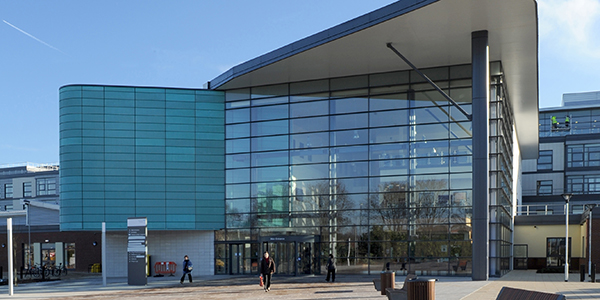
September 21, 2018, by studentcontributor
The Graduate Entry Medicine course
Dear prospective GEM students,
Some of you are considering leaving successful careers to go back to university and retrain; for others this was always the goal but it has taken a little longer than anticipated. Whatever your situation, graduate entry medicine is a somewhat gruelling but very rewarding experience. This short post outlines the application process, the GEM curriculum, and transitioning to daily life as a GEM student in Derby.
Application process
The application process can be broken down into three parts: the GAMSAT exam, the interview (MMI) and your clinical experience. All are important, concentrate on getting a GAMSAT above the cut off point (see previous years data for rough estimate) first of all. This will get you an interview which consists of a series of eight 10-minute stations in which you will discuss a variety of medical topics and do some role play of clinical scenarios. At this point your performance at interview becomes somewhat a deciding factor as to whether or not you are offered a place; so good preparation is key.
The Nottingham programme
Should you have the good fortune and tenacity to receive an offer from the Nottingham GEM course, here are some important facts in choosing whether to attend Nottingham. The course here in Nottingham has about 90 students and is based at the Royal Derby Hospital. This is an important fact, since the first 18 months of the course are spent entirely in Derby. Most GEMs choose to live in Derby for that time, is a different experience compared to an undergraduate degree in a larger university-town such as Leeds, Manchester or even Nottingham itself.

Royal Derby Hospital
Problem-based learning
In terms of the theory aspect of the course there are 3 main teaching methods: lectures, anatomy workshops and problem-based learning (PBL). PBL is the overarching method by which the syllabus is delivered, we are divided into small groups and generally have three sessions per case. In the first we have the case presentation, in the second each group member presents on a specific topic related to the case, and finally we discuss the diagnosis and management of the patient. This is often done with role-play and plenty of discussion under the supervision of a PBL facilitator; a member of staff who guides the case discussion. Both lectures and workshops support our learning for the weekly PBL case. In workshops we complete a workbook a week prior to the session and then have small group teaching using prosections, diagrams and interactive discussion. Over the GEM course there are nine systems-based modules (e.g. Respiratory, Cardiovascular, Abdominal) to complete.
Early clinical exposure
One of the great strengths of the GEM course is that it combines theory and practical aspects of medicine from the start. We have an excellent clinical skills syllabus delivered to us by GP tutors, hospital staff and clinical educators. Sessions are weekly and mainly focus on history taking and clinical examination skills. Learning of these skills is reinforced by early clinical exposure, a series of nine GP visits over the entire GEM course (one per module) in which we practise clinical skills and history taking on current patients within the GP practice.
Clinical phases
For the last 30 months, the ‘Clinical Phases’, you are based all around the East Midlands region at hospitals and GP surgeries in Derbyshire, Nottinghamshire and Lincolnshire. So you’re never in one place for very long, a situation which has the advantage of seeing how things are done in a diverse set of hospitals and communities.
In terms of the day to day life of a GEM student, it is best treated as a 9am-5pm (plus some) job. This will give you some much needed free time in the evenings and on the weekends. Some GEM students commute to their hometowns on a daily or weekly basis for support, work or to help ease the transition from often well-established and vibrant social lives.
Advice
My best advice to prospective GEMs is to secure good accommodation, keep up hobbies and interests outside of medicine, and prepare yourself for 18 months of studying copious amounts of knowledge and not being able to master it all. The classic analogy is that it is like drinking out of a fire hydrant. However, if you stay focused on your goal and work hard towards it the chances are that you will find GEM a great foundation for clinical phases and, ultimately, life as a doctor. I wish you all good fortune in your future endeavours and hope that this article has given you some insight into my experience and the structure of the GEM course at University of Nottingham.
Contributor: Joshua Valverde for Nottingham’s Widening Access to Medicine Society
Learn more at the next GEM Open Day on Saturday 6 October 2018.
Previous Post
A day in the life of a medical studentNo comments yet, fill out a comment to be the first

Leave a Reply